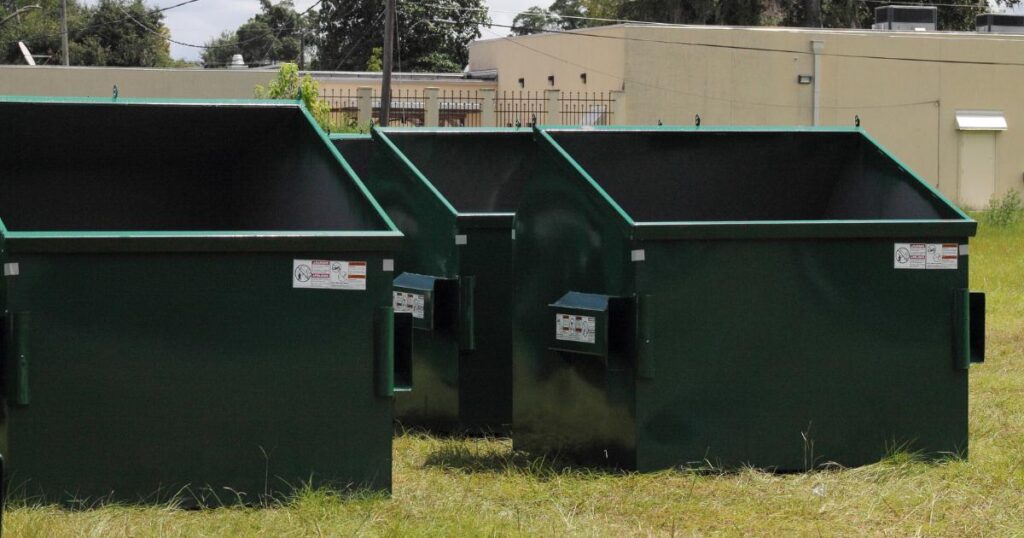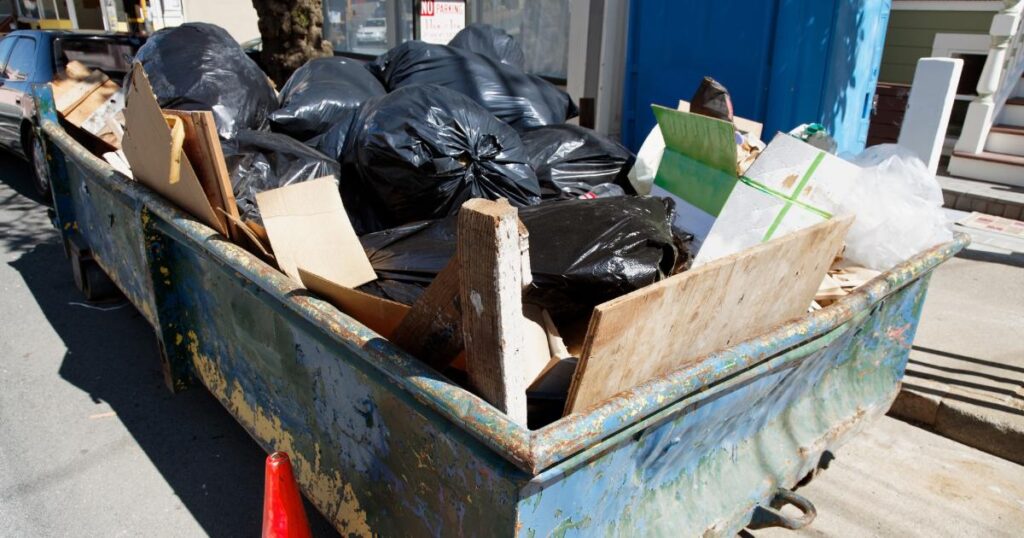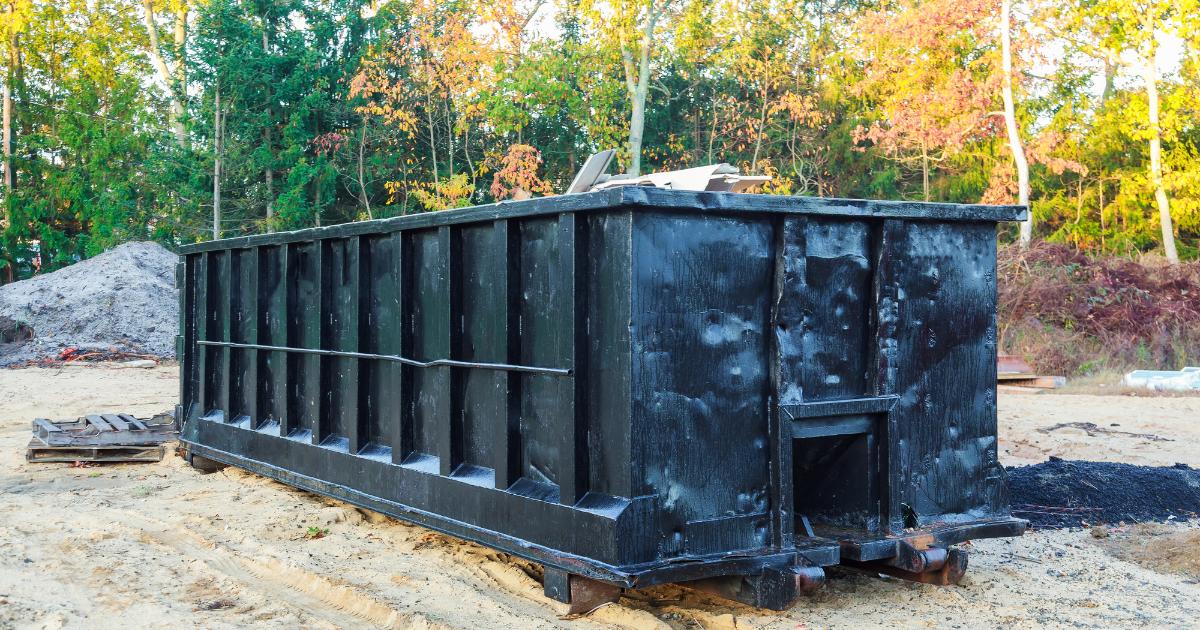Renting a dumpster is an essential step for any project that creates a significant amount of waste, from home renovations to major construction jobs or large-scale cleanouts.
It’s a simple, efficient way to keep your worksite clear and organized. But the key to a hassle-free experience is choosing the right dumpster size.
With this guide, you’ll learn how to select the ideal dumpster for your project, saving you time, money, and effort along the way.
Understand the Scope of Your Project
Before picking a dumpster, it’s crucial to assess the size and scope of your project.
This isn’t just about how much debris you’ll generate—it’s also about the type of materials you’re disposing of.
Are you clearing out household junk, or dealing with heavier construction debris like wood, concrete, or bricks? Here’s how your project type influences your choice:
- Small Projects: Small Projects: Projects like a garage cleanout or a single-room renovation might not produce much debris. For such needs, check out our residential trash collection services.
- Medium Projects: Kitchen or bathroom remodels, multi-room cleanouts, or deck removals typically require a bit more space for disposal.
- Large Projects: If you’re working on large renovations, major construction, or demolitions, you’ll need a larger dumpster to handle the volume and weight of materials.
Knowing what you’re working with gives you a solid foundation for selecting the right size.
Explore Available Dumpster Sizes
Dumpsters are available in various sizes to meet different needs. Here’s an overview of the most common options:
10-Yard Dumpster: Ideal for Small Cleanups
The 10-yard dumpster is perfect for home cleanouts or single-room renovations. For more details or to rent one, visit our 10-yard dumpster.
If you’re focusing on clearing out a garage or disposing of old furniture, this is the ideal choice.
20-Yard Dumpster: The Versatile Choice
The 20-yard dumpster is a popular option for home projects. It’s suitable for medium-sized tasks, such as a bathroom or kitchen remodel, and holds about 6 pickup truck loads of waste.
This size is also well-suited for removing old carpeting, drywall, or heavy materials from a medium-scale renovation.
30-Yard Dumpster: For Larger Jobs
For projects involving multiple rooms, large deck removals, or mid-sized construction work, the 30-yard dumpster provides ample space.
It can hold up to 9 pickup truck loads of debris and is perfect for larger home renovations or construction jobs.
40-Yard Dumpster: For the Biggest Jobs
The 40-yard dumpster is the largest standard size, designed for major construction projects, large demolitions, or extensive cleanouts.
It holds approximately 12 pickup truck loads of waste, making it ideal for significant commercial projects or substantial residential overhauls.
Specialized Dumpsters: Tailored for Unique Needs
Certain projects may include hazardous materials, recyclables, or other types of specialized waste. In such cases, you’ll require dumpsters specifically designed for handling particular debris, such as asbestos, metal, or green waste.

Key Factors to Consider When Choosing the Right Size
Estimate the Volume of Waste
Choosing a dumpster that’s too small may require additional pickups. To get an accurate estimate of your needs, consult our dumpster rental options.
On the flip side, renting a dumpster that’s too big can be a waste of money. The trick is to estimate your waste volume accurately.
If you’re unsure, speak to your waste management provider for guidance on calculating the amount based on your project type.

Consider Available Space at Your Project Site
Do you have enough room for the dumpster you plan to rent? A dumpster that’s too large for your space can lead to headaches down the line.
Measure your driveway or designated placement area to ensure there’s enough clearance for both the dumpster and the delivery truck.
Understand Weight Limits and Restrictions
Different dumpster sizes come with weight limits. For example, disposing of heavy materials like concrete, soil, or roofing shingles requires careful consideration of weight restrictions to avoid overage fees.
Even if your dumpster has room, exceeding its weight capacity can lead to extra costs and complications when it’s time to haul the waste away.
Check Local Permits and Regulations
If you’re placing a dumpster on public property, such as a street or sidewalk, most municipalities require a permit.
Rules can change depending on where you are, so it’s a good idea to double-check with your local authorities or rental provider to make sure you’re doing everything by the book. The last thing you want is to deal with fines or legal headaches while you’re working.
Plan for Rental Duration
How long will you need the dumpster? The rental period can affect the price, especially if your project runs longer than expected. Discuss your timeline with the dumpster provider and choose a rental period that matches your project’s needs.
Some companies offer flexible options, allowing you to extend your rental if necessary.
Factor in Your Budget
Dumpster rental costs depend on factors like size, location, and rental duration. Bigger dumpsters generally cost more, but sometimes opting for a smaller one can result in more frequent pickups, which may end up costing you more.
Be mindful of your waste volume and budget to find the right balance between cost and efficiency.
Keep Safety in Mind
Proper placement is key—position your dumpster on level ground, away from obstacles and traffic. For tips on safe dumpster placement and usage, check out our junk removal services.
Additionally, equip your team with protective gear and make sure everyone is trained in proper waste handling protocols.
- Secure the Dumpster: Cover the dumpster to prevent unauthorized access or illegal dumping, and always ensure it’s placed in a way that minimizes the risk of accidents.
- Hazardous Waste: If you’re dealing with hazardous materials, make sure you have the appropriate type of dumpster and follow all safety guidelines for disposal.

FAQs:
How do I know what size dumpster I need for my project?
Start by evaluating the scope of your project. Small projects, like cleaning out a garage or renovating a single room, typically require a 10-yard or 20-yard dumpster.
Larger projects, like full-scale renovations or construction, will need a 30-yard or 40-yard dumpster.
If you’re unsure, your dumpster rental provider can help you estimate the appropriate size based on the type and volume of waste your project will generate.
What happens if I rent a dumpster that’s too small?
If your dumpster fills up faster than expected, you’ll either need to have it emptied and returned, or rent an additional dumpster. Both options can add extra costs to your project.
To avoid this, carefully assess the amount of waste you’ll generate, and when in doubt, go with a slightly larger size to prevent overages.
Are there weight limits for dumpsters?
Yes, each dumpster size has a weight limit. Heavier materials like concrete, brick, or roofing shingles can quickly add up in weight. Exceeding the dumpster’s weight limit can result in additional fees, so it’s important to accurately estimate the weight of your waste before choosing a dumpster. Most rental companies can provide guidelines to help with this.
Do I need a permit to rent a dumpster?
It depends on where you plan to place the dumpster. If the dumpster will be on private property, like your driveway, a permit is usually not required.
However, if you plan to place it on a public street, sidewalk, or any other public space, you’ll likely need a permit from your local municipality.
Check with your rental provider or local authorities to make sure you’re in compliance with local regulations.
Can I put anything in the dumpster?
No, there are some restrictions on what can be thrown into a dumpster. Items like hazardous materials (e.g., chemicals, paint, asbestos), electronics, tires, and certain appliances may not be allowed.
Check with your dumpster rental company for a full list of prohibited items, and ask about special dumpsters if you’re dealing with hazardous or recyclable materials.
How long can I keep the dumpster?
The rental period typically depends on the company and your project’s needs. You can rent dumpsters for as short as a few days or for several weeks if needed.
If your project runs longer than expected, most companies offer the option to extend the rental period for an additional fee. Be sure to discuss your timeline with the rental provider when booking.
What is the cost of renting a dumpster?
The cost varies depending on the size of the dumpster, location, rental duration, and the type of waste being disposed of. Generally, larger dumpsters and longer rental periods will cost more.
Some companies also charge extra if you exceed the weight limit or require additional pickups.
Always get a clear quote upfront, and compare prices from different providers to ensure you’re getting the best deal.
Can the dumpster damage my driveway?
While rare, heavy dumpsters can sometimes leave marks or cracks on driveways, especially if they’re loaded with dense materials like concrete or bricks.
To minimize the risk, ask the rental company to place wooden planks under the dumpster to distribute the weight more evenly and protect your driveway.
In Conclusion:
Choosing the right dumpster size is crucial for the smooth running of your project.
By understanding the scope of your work, exploring available sizes, and considering key factors like waste volume, space, and regulations, you can confidently select the perfect dumpster.
This decision will not only streamline your waste disposal process but also help you avoid unexpected costs and delays, keeping your project on track from start to finish.
